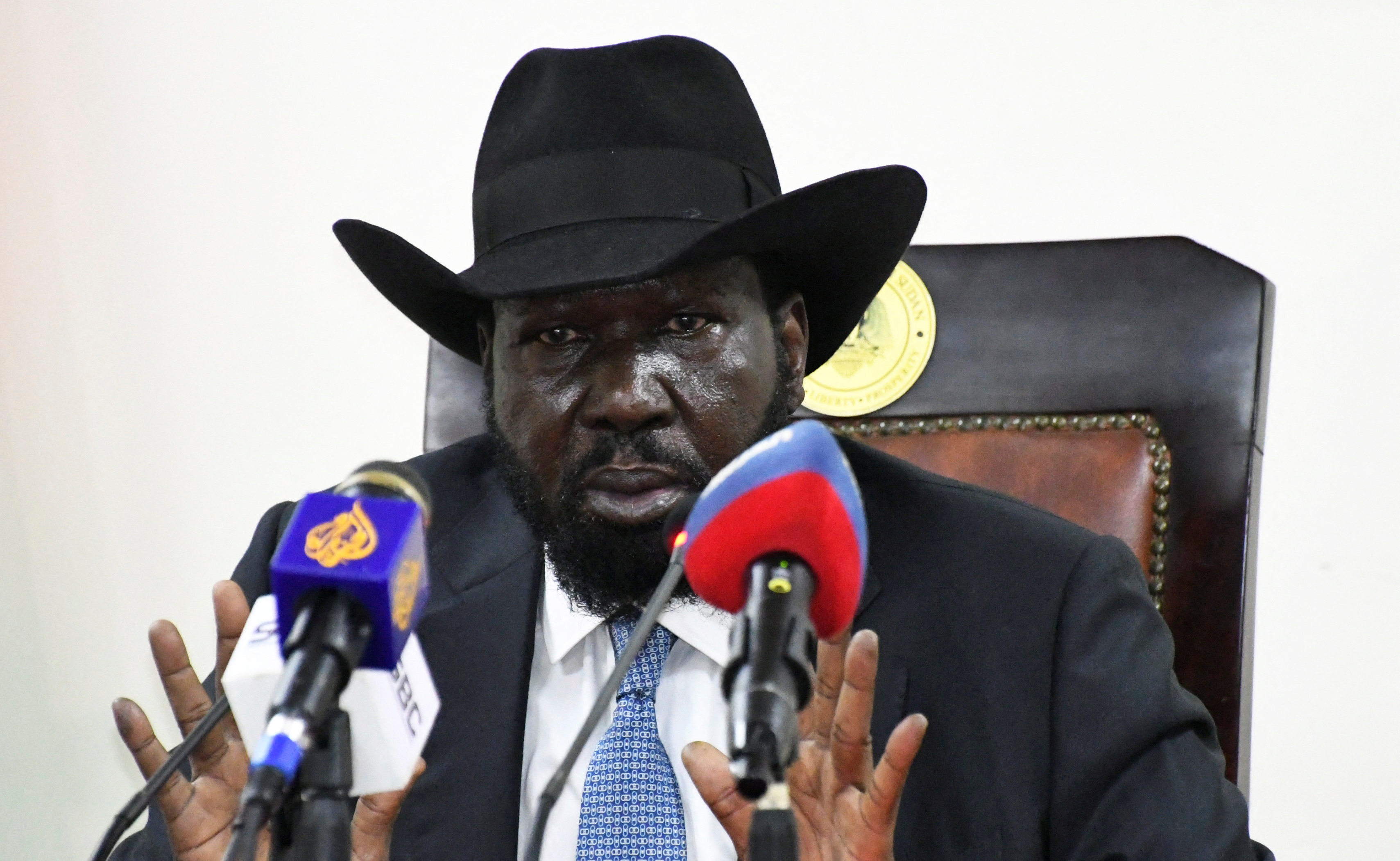
South Sudan’s President Salva Kiir addresses a news conference at the State House in Juba, South Sudan March 28, 2022. REUTERS/Jok Solomun/File Photo
JUBA, Aug 4 (Reuters) – South Sudan President Salva Kiir has fired Finance Minister Dier Tong Ngor, the latest abrupt cabinet change in the East African country, and a spokesperson for Kiir linked it to a recent slump in the South Sudanese pound.
“You have seen what’s happening in the market, I mean how the U.S. dollar is appreciating against the South Sudanese pound,” the spokesperson said, when asked why Ngor had been removed after about a year in his post.
The initial announcement on Ngor’s removal did not give a reason for the decision.
The new finance minister will be Bak Barnaba Chol, an economics graduate who is seen as a close political ally of Kiir, the spokesperson said, adding it was routine for Kiir to make cabinet changes when he felt it was necessary.
South Sudan’s currency has fallen by around one-third against the dollar in the past two months, with analysts saying factors pushing it down include economic instability caused by communal violence and Kiir’s failure to closely adhere to a 2018 peace deal.
Kiir has now fired four finance ministers since 2020.
In March he sacked the foreign minister without explanation, less than a week after dismissing the defence and interior ministers in violation of terms of the peace agreement with the opposition.
The country’s economy is predominantly reliant on crude oil sales but was ravaged by a 2013-2018 civil war that erupted soon after it achieved independence from Sudan in 2011.
Boboya James, an analyst at the Juba-based Institute of Social Policy and Research, said the decision to sack Ngor was unlikely to solve the country’s economic challenges.
“Whether President Kiir will fire 1,000 ministers of finance or governors of banks, so long as there is no economic reform, so long as the small revenue coming from oil is not boosting agriculture and other productive sectors … there will never be improvement in the economy,” he said.
Reporting by Simon Waakhe Wudu
Editing by Alexander Winning, George Obulutsa and Frances Kerry
Our Standards: The Thomson Reuters Trust Principles.